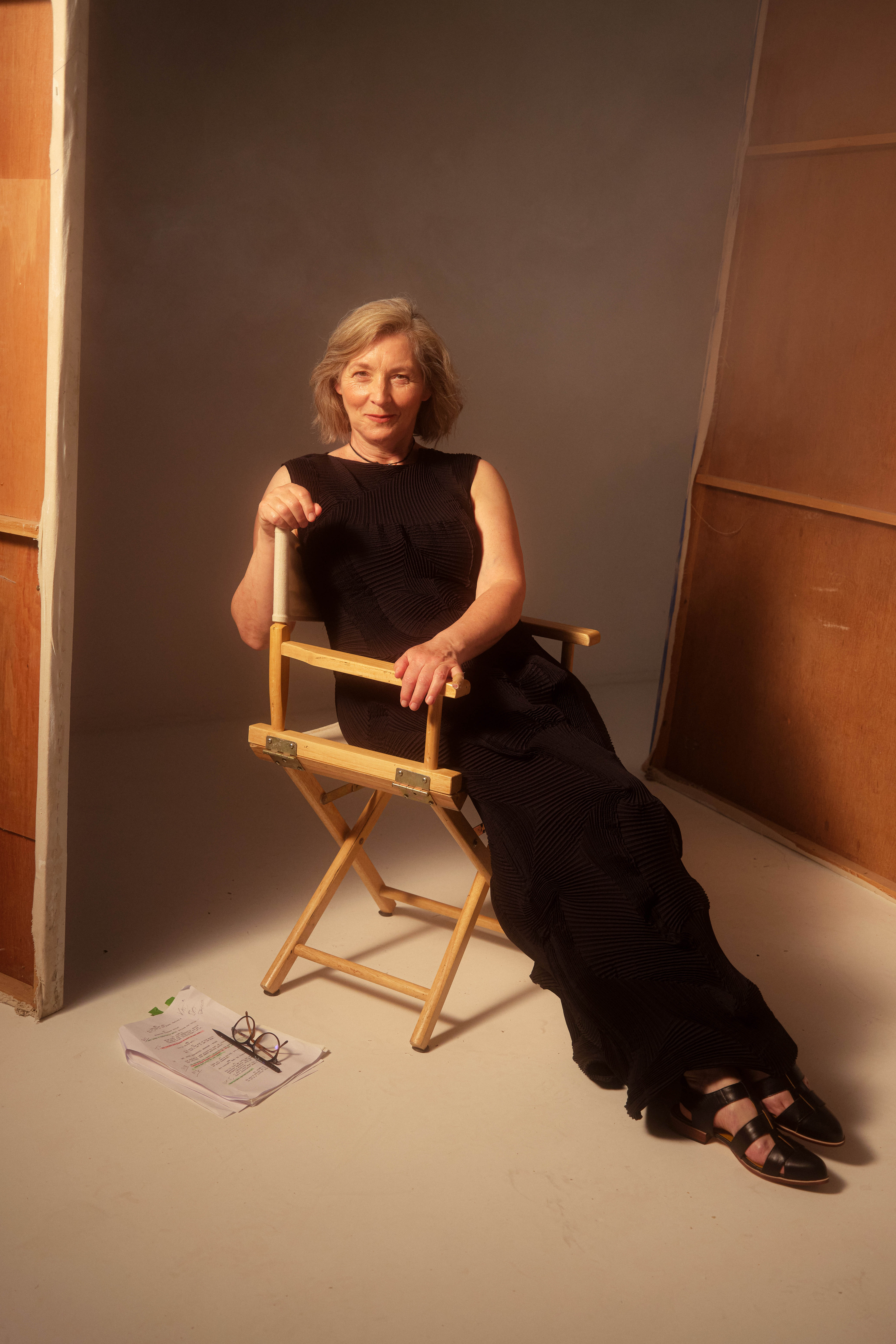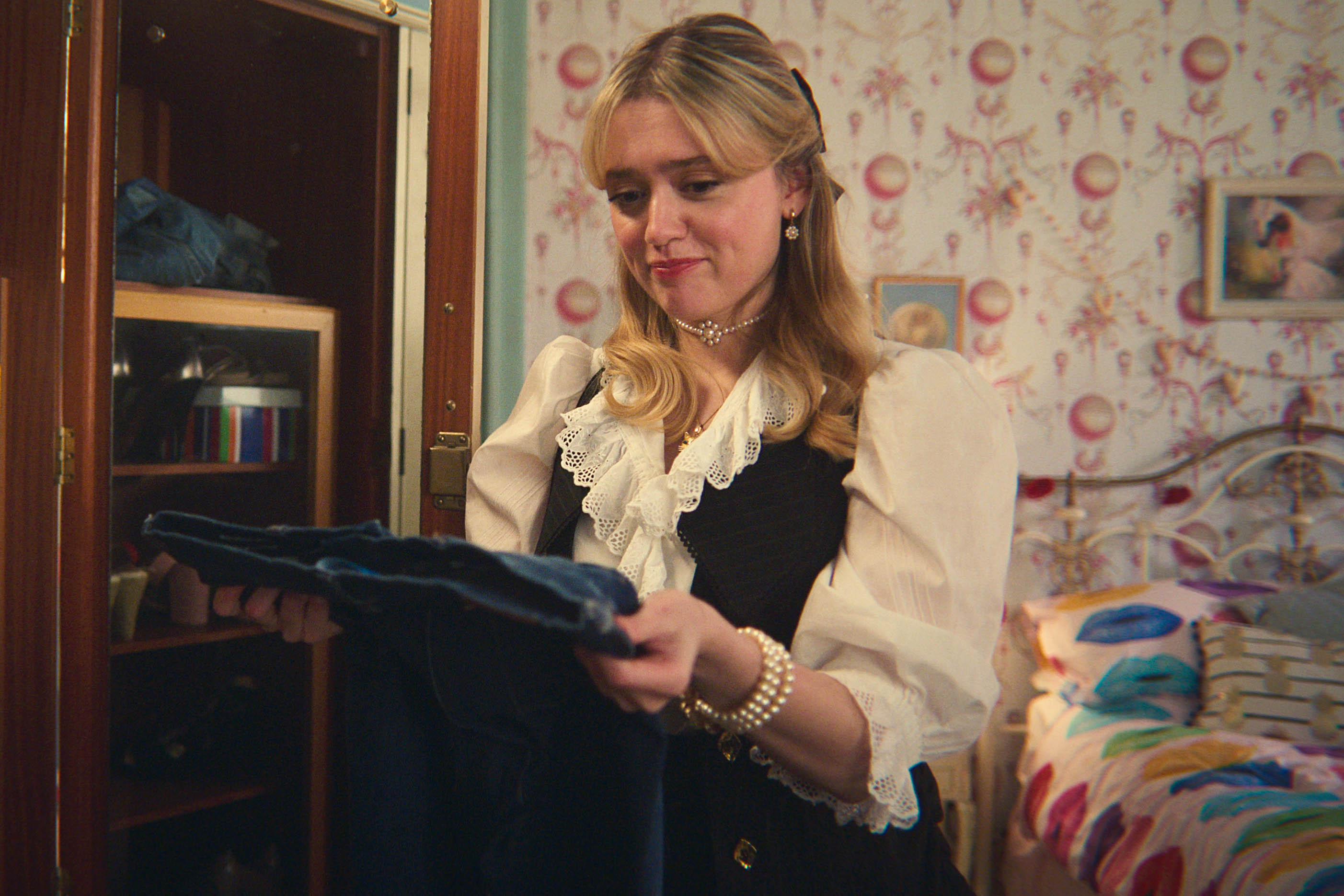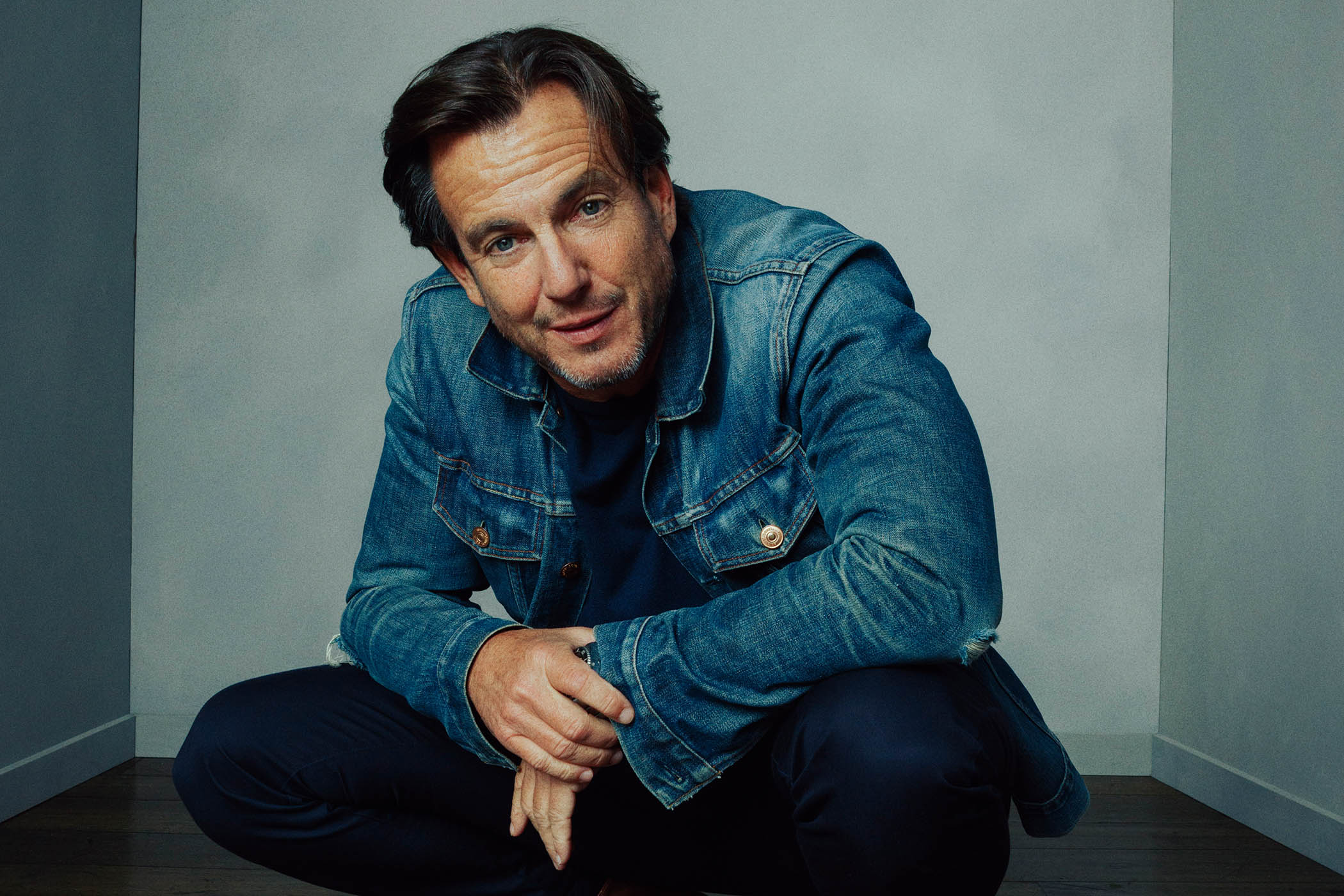Ita O’Brien was waiting backstage. A guard directed me through the stage door of the Royal Opera House in London into a squat dim lobby, then a series of low-ceilinged white corridors that wound around the side of the building, and then there she was looking down on the stage, whispering. O’Brien, who is the world’s leading intimacy coordinator, was last here working on a production of The Rape of Lucretia – one of the first things she created was a “breakout room” for when cast members became overwhelmed by its six-minute rape scene. This is what she does (she explained as the actors bellowed in their rehearsal below) – she creates boundaries, whether with cushions down trousers or space backstage, in order to delineate between performance and real life.
The work began when she was 50, and having trained as a dancer and actor she became frustrated at the lack of professional structure to choreograph physicality, so she drew up the Intimacy on Set guidelines to ensure sets were safe and consensual for actors and crew. Today, after a decade working to improve her industry, she has become interested in improving our relationship with intimacy in everyday life, and so, in a new book, has turned her gaze towards the audience. “Just as she helped me and countless other actors navigate intimate scenes with confidence and authenticity,” wrote the actor Gillian Anderson, who worked with O’Brien on Sex Education, now she’s drawn the rest of us “a roadmap for exploring intimate relations”.
After leaving the rehearsal, O’Brien and I settled around a table in an empty bar below the Royal Opera House. “I feel really privileged to be able to share my movement practice and open communication and transparency about agreement and consent, clear boundaries, and how that gives freedom,” she said, without a breath. “All of that was put in place through the guidelines that we created in the industry, and I’m sharing how that, actually, is a really fabulous template for who we are in our everyday lives.” Some people, I suggested, will be expecting a book about shagging. “Well they’re not going to get it!”
There is some shagging in her book, to be fair. It details, for example, the scene she choreographed in Normal People in which Marianne and Connell have sex for the first time, illustrating how each awkward erotic beat propels the story, and in its realism resonated so strongly that it introduced the world to the concept of an intimacy coordinator and then to the idea that the sex we see on-screen has a profound effect on our lives off it.

‘The shift has been joyous within the industry’: Ita O’Brien wears jacket, T-shirt and trousers by Toast
“Before the Intimacy On Set guidelines the director would just say to the actor, right, go for it. And that’s where all those confusions came from, around who someone was personally and who someone was professionally. Obviously, they want to do their best and they want to be seen to be brave.” So they would just… go for it. Now, “I’m saying: this is professional,” and putting in place a process that professionally invites an actor’s boundaries. In the past if an actor said no to nudity or intimacy, “they would be considered a troublemaker or a diva and there would be repercussions. Whereas what’s joyous about now is, we say actually, your ‘no’ is a gift.”
She shook her head. “I’ve had a lady who, in rehearsal for a rape scene with three guys, said the director told her to just ‘go for it’.” When the actress asked for a pause, “she was scapegoated as unprofessional.” Sex scenes should be thought of like fight scenes – they’re stunt work. And two actors don’t need to be attracted to each other in order to perform a love scene, in the same way that directors aren’t saying, “‘We’re going to make sure you really hate each other so you can get to a fight scene.’ In that mindset, that’s where so much bad practice happens.”
After the concept had gathered acceptance, against a background of the emerging MeToo movement, there began what Barbara Ellen recently described as “the ongoing soft-cancellation of the intimacy coordinator”. Gwyneth Paltrow, for instance, recalled a conversation she’d had with an intimacy coordinator filming her 2025 film Marty Supreme. “I’m like, ‘Girl, I’m from the era where you get naked, you get in bed, the camera’s on… ‘We said, ‘I think we’re good. You can step a little bit back.’” Paltrow added, “I don’t know how it is for the kids who are starting out, but… if someone is like ‘OK, then he puts his hand here’… I would feel as an artist very stifled by that.”
O’Brien (who defined her boundaries throughout the interview – when I asked later about her adult children she smiled and said, “I’m here in a professional capacity,”) won’t speak about Paltrow or projects she didn’t work on directly, but said one day she’ll write another book that will explore “really seriously bad behaviour directed towards me,” but not for at least 20 years. We’ll revisit then. The pushback continues.
Related articles:
Asked about a trend towards fewer sex scenes on screen, Michael Douglas said intimacy coordinators were “executives taking control away from filmmakers”. Mikey Madison didn’t want one for her Oscar-winning role in Anora, whose director Sean Baker said: “I have directed approximately 10 sex scenes throughout my career and I’m very comfortable doing so.” Jennifer Aniston refused one on The Morning Show, which began in 2019, despite the role of an intimacy coordinator being to advocate for everyone on set, particularly those without the power or voice of a star. “A lot of it,” O’Brien suggested, “is just a lack of understanding of what we bring, what we’re holding, what the professionalism is.” She paused. “When I hear people saying that they don’t want intimacy coordinators, I wonder if in the early days, perhaps I interfered too much?”

‘Sex scenes should be thought of like stunt work’: Michaela Coel in I May Destroy You
An actor once pushed back on O’Brien’s repeated attempts to schedule a rehearsal for his upcoming sex scene, because, he said, he didn’t want to make it “a thing”. “If an actor was like, ‘I’ve got to jump off the highest ceiling and the highest building in the world, but let’s not talk about it, I’ll just take a deep breath and close my eyes and I’ll just do it.’ Can you imagine?” She told the actor that rehearsals, choreography, conversation were what would rid the scene of its thingness – that performing sex and intimacy without discussion or a fixed framework was what actually imbued the upcoming scene with its grim power. Directors told O’Brien that they’d been worried about discussing details of intimate scenes for fear of being thought of as, “The ‘pervert’. Well, that’s reversed now.”
Newsletters
Choose the newsletters you want to receive
View more
For information about how The Observer protects your data, read our Privacy Policy
She noticed a shift in attitude after a scene she’d worked on in Sex Education in 2019, where Aimee Lou Wood’s character sets out on a masturbatory quest. “Intention, head down, create good work, create good choreography and there’s a ripple effect out in the world. It has impact.”
Women have approached her in the years since to say that scene had changed their lives. “Giving them permission to explore themselves in a way that they felt was closed off to them. That, for me, is good work. Likewise with the sexual awakening scene in Normal People. I’ve had secondary schools telling me that they use that scene now as part of their sex education, showing a positive depiction of being able to ask for consent.”
One of the most rewarding moments in her career happened in 2021, when the actor and writer Michaela Coel won a Bafta for I May Destroy You. She dedicated the award to O’Brien. “Thank you for your existence in our industry, for making the space safe, for creating physical, emotional and professional boundaries so that we can make work about exploitation, loss of respect, about abuse of power, without being exploited or abused in the process,” she said. “I know what it is like to shoot without an intimacy director – the messy, embarrassing feeling for the crew, the internal devastation for the actor. Your direction was essential to my show and I believe essential for every production company that wants to make work exploring themes of consent.” The “internal devastation” – images of a burnt-out house, a body in chaos. “The wreckage has taken different forms for different people,” O’Brien wrote in her book, not just actors whose careers were stalled, but the impact on the body, for instance, of a woman who is objectified by strangers, or the victim of sexual abuse.

‘Intention, head down, create good work, good choreography and there’s a ripple effect out in the world. It has impact’: Ita O’Brien wears dress by A-POC ABLE Issey Miyake and sandals by Mafalda Handmade
For a role that was mostly unknown until 2018, the intimacy coordinator has now been firmly established in the mainstream and, despite some celebrity pushback, is largely embraced. The next stage, said O’Brien, is to elevate the training. “Now we need to start making sure, just the same as with stunt coordinators who have to go through rigorous training, that intimacy coordinators are fully qualified in order to be able to present the work. That’s not there yet.”
A recent Saturday Night Live sketch saw Scarlett Johansson play a wildly unqualified intimacy coordinator – this is not unfamiliar to O’Brien. Currently, anybody can claim to be an intimacy coordinator can be hired by a production. “Literally anybody. In the early days, particularly through lockdown, there were people that I had just shared the outline of the intimacy on set guidelines with on Zoom, and then I hear that they’ve gone to HBO and presented themselves as an intimacy coordinator.”
There could be huge ramifications if people approached the work in bad faith, or stumbled through moments of public vulnerability. “A production that’s just shown at Cannes brought us in because one of the lead actresses had worked with someone who hadn’t journeyed through full training and through to accreditation. And she said, ‘If that’s intimacy coordination, I don’t want it.’”
Looking back on her career, O’Brien appreciates attitudes towards sex and intimacy have improved and her own journey reflects that slow change. She was raised in south London by parents from rural Ireland – sex was never discussed. At 14, her mother told her if she ever lived with her boyfriend, the family would disown her.
Working as a young dancer she was required to dance topless, and as part of a pantomime chorus was told the star expected sex each night – she learned to vanish after the show. Her first TV job was on The Benny Hill Show in 1984, in which Hill used her cleavage as a stand for his menu card. Since then, “Our attitudes to sex and sexuality have gradually been called out.” As she was preparing her intimacy guidelines (after producing a piece of work called Does My Sex Offend You?), allegations about Harvey Weinstein emerged. “All of this for me is really positive, society saying, come on, let’s keep waking up. But we need to keep going.”

‘Think of the pads like the stunt coordinator’s crash mat. We’ve got different-shaped genitalia cushions’: Ita O’Brien worked with Aimee Lou Wood in Sex Education
Her new focus is on young people’s sex education. “If there’s a void, they’ll fill that void. So let’s teach.” Education doesn’t remove a child’s innocence, she argued, it preserves it. “Because they can understand their bodies, they can understand their physiology, and we can give them the language and the equipment to call their boundaries.”
O’Brien’s book, which is aimed at anybody for whom “intimacy and loving is important” treks through exercises to aid connection, diagrams explaining arousal, ageing on screen, masturbation in nursing homes (“Your sexual expression is part of your human right”) and finally her 14-step Intimacy On Set guidelines, which includes a guide to scenes that progress from sex to violence and “no tongues” as standard practice.
Resting on the table between us as we talked was her linen kit bag, out of which she pulled a pack of tape in various nude tones, and a modesty garment that sticks above the pubic line and around the crotch to the small of the back, “which obviously gives ‘nakedness’, but also very importantly, if you’re performing a simulated sex scene, means that no naked genitalia touch – it’s a workplace”.
Next from the bag was a series of small fleshy cushions – one was a g-string stuffed with lambs wool, the other, slightly larger, was filled with a cut-up Ikea blanket. “Think of them like the stunt coordinator’s crash mat. We’ve got a whole load of different shaped genitalia cushions so that you can put them in place…” She leaned back in her chair with the larger cushion between her legs, simulating masturbation, “If there’s finger pleasure…” – her eyes briefly closed – “the actors would do double layers of g-strings and then put that in between them like this,” – her hand gestured down the front of her trousers – “so it just gives them more padding. You’re looking at agreement and consent in where the hand can go and then looking at pressure, and what’s happening in the arm…” She demonstrated slowly concentrating on the muscles of her wrist, “and that really helps because then they’re able to have a sense of a shared choreography.” She put the cushions away with some briskness.
Having risen to the status of Britain’s queen of intimacy, O’Brien’s career today typically sees her advising directors on the anatomy of sexuality, and actors on how to say no. Partly in order to make good TV. “If it’s anatomically correct, what happens on screen makes me as an audience feel that what’s happening in my life is validated.”
The most simple example, she offered, is “vaginal penetration after three minutes of kissing with no lubrication. One of the largest presentations to GPs by women is vaginal pain, which very often comes from being penetrated too soon with no understanding of lubrication.” A doctor told her how their female patients complain about low libido. “And she’s helping them realise it’s not low. It’s just a different libido. A fundamentally female libido. To really be ready for penetration, you’re looking at like 15, 20 minutes,” of foreplay. “Everybody should be taught this!”
What appealed to her particularly about this work? “Well,” she smiled, leaning in so the blue crystal round her neck fell forward, “As a menopausal woman, you teach best what you most need to learn.” Her first year on set as an intimacy coordinator in 2018, “Was absolutely the year that I stopped menstruating. Those things were dovetailing. I wanted to go somewhere where I could learn, but I didn’t want to have to go to pornography. Those separate things have somehow come together in my journeying – the intention to educate myself and then my practitioners so that we can bring good anatomy to the choreography of intimate scenes.”
Has the work changed her intimate life? “I’ve learned you can’t start a journey unless you know your starting place.” A pause. “Which is: what do I want?”
O’Brien has become intimate with intimacy by unpicking how onscreen sex impacts both its actors and audience. The problem with sex in filmmaking, she has learned, is the same as the problem with sex in real life – if people are too embarrassed to talk about it, then they risk harm, disconnection and disappointment.
Placed upon the nightstand O’Brien’s book allows her into the bedroom. “Intimacy is a physical expression of who we are as human beings. It should be considered, researched, talked about, creative. The shift has been joyous within the industry. Now I’m inviting people to bring it into their lives.”
Ita O’Brien is the author of Intimacy: A Field Guide to Finding Connection and Feeling Your Deep Desires, published by Ebury at £16.99
Styling by Sam Deaman; hair and makeup by Juliana Sergot; set design by Kat Easto; photographer’s assistants Philip Banks and Millie Noble. Photographs: Landmark Media; BBC



